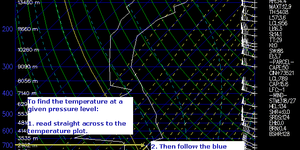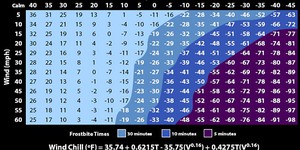Weather & Atmosphere Science Projects (28 results)
Everybody talks about the weather, but nobody does anything about it.
- Charles Dudley Warner
Weather and atmospheric science offer lots of opportunities for interesting explorations. It's a satisfyingly complex area, with lots of online resources so you can make your project as easy or as advanced as you want. And when you're done, you'll have a science fair project everyone can talk about.
|
Select a resource
Sort by
|
How does temperature vary with latitude? What happens as you move away from the equator? Test this by comparing weather data from weather stations at different latitudes. (FI, 2006; GLOBE, 2006; NCAR, 2006; NOAA, 2006; Unisys, 2006; Weather Underground, 2006; WMO, 2006)
Read more
Featured
Have you heard that garlic powder is supposed to inhibit the growth of bacteria? Which do you think would make a better disinfectant: a solution of garlic powder or a solution of bleach? This project shows you a straightforward way to compare the effectiveness of different disinfectants (or other antimicrobial agents), by measuring zones of inhibition on a culture plate.
Read more
Ocean currents have a huge impact on our weather. If not for the ocean currents, the global climate would be similar to an ice age. Do you live near the coast? Find out which currents are near your coastline. How do they affect your climate? Where do they come from? Do they bring colder or warmer water to your area? Are they seasonal? What do you think your area would be like without them? Every three to seven years there is a weather phenomenon called El Niño, which is caused by…
Read more
The Sun is the ultimate source of the energy that powers weather systems on Earth. Geomagnetic storms are sun-powered storms in the upper atmosphere, arising from energized particles that are periodically ejected by the Sun. Among other effects, geomagnetic storms can wreak havoc with earth-orbiting satellites, and disrupt satellite communications. The global positioning system (GPS) is a network of 24 earth-orbiting satellites that constantly sends radio signals through the earth's…
Read more
Snow-capped mountains make a picturesque scene, especially in summertime when the peaks are in such contrast to the warmth below. This project shows you a way to see how temperature changes with altitude using data collected twice daily from weather balloons.
Read more
Have you heard the term windchill used before? Maybe on the TV weather forecast? The windchill factor describes what happens to an object (like your body) when it is cold and windy outside. As wind increases, heat is carried away from the body at a faster rate, driving down both skin temperature (which can cause frostbite) and eventually the internal body temperature (which, in extreme cases, can lead to death). In this science fair project, you will use a device to measure wind speed (an…
Read more
Wind can make a cold day colder, or a hot day more pleasant. Use weather data to test the effect of wind on the temperature. How much of a change on the perceived temperature can the wind make? How is wind shear calculated? How can a wind barrier, like a wind breaker, keep you warm even if there is no insulating material? Build an instrument to measure wind speed or direction. (FI, 2006; GLOBE, 2006; NCAR, 2006; NOAA, 2006; Unisys, 2006; Weather Underground, 2006; WMO, 2006)
Read more
Can you remember what the weather was like last week? Last year? Here's a project that looks at what the weather was like for over a hundred years. You'll use historical climate data to look at moisture conditions in regions across the continental U.S. You'll use a spreadsheet program to calculate the frequency of different moisture conditions for each region and make graphs for comparison. Which part of the country has the most frequent droughts? The most frequent periods of prolonged…
Read more
Are you a snow aficionado? What atmospheric conditions produce light, powdery snow, and what conditions produce heavy, wet snow? This project shows you how to use data from daily balloon soundings of the atmosphere and your own snow measurements to find out.
Read more
|
Explore Our Science Videos
How to Build an ArtBot
Mold Hard Boiled Eggs
Build A River Model – STEM Activity










